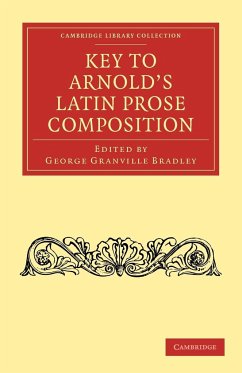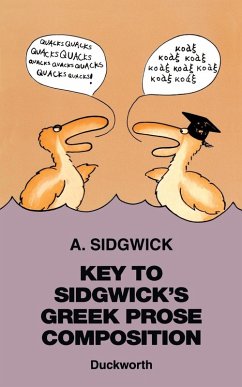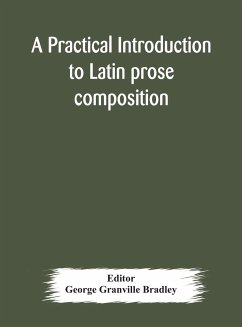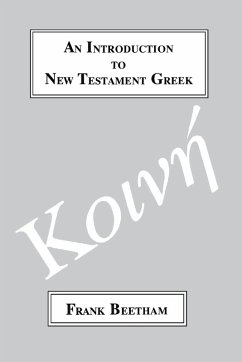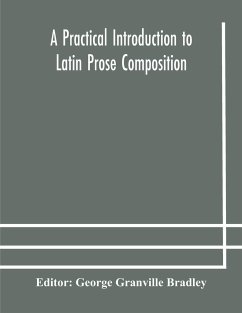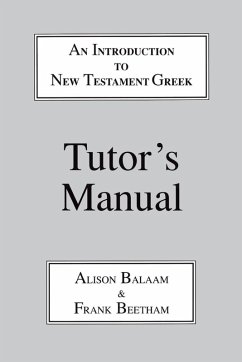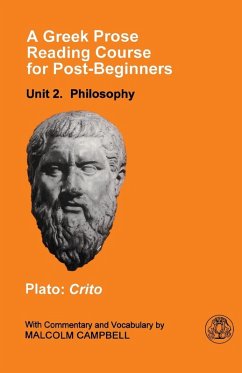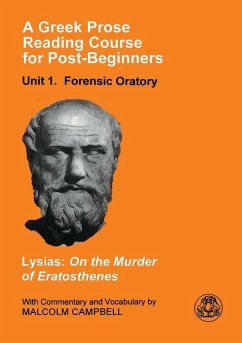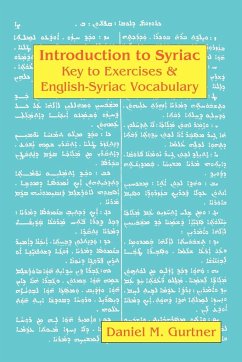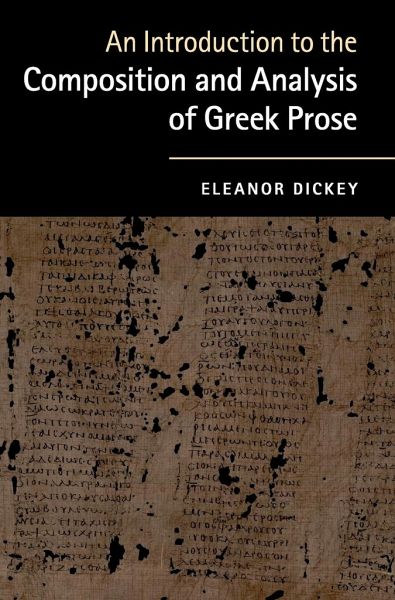
An Introduction to the Composition and Analysis of Greek Prose
Versandkostenfrei!
Versandfertig in 1-2 Wochen
98,99 €
inkl. MwSt.

PAYBACK Punkte
49 °P sammeln!
Why learn to write in a dead language? Because a really good understanding of a language can only be attained by using it actively. Unlike earlier textbooks aimed at schoolboys, this work addresses modern adults who want to understand concepts fully as they learn. Drawing on recent scholarship where appropriate and assuming no prior background except some reading knowledge of Greek, the course combines a structured review of paradigms and vocabulary with clear and comprehensive explanations of the rules of Greek syntax. Large numbers of exercises are provided, both with and without key: a comp...
Why learn to write in a dead language? Because a really good understanding of a language can only be attained by using it actively. Unlike earlier textbooks aimed at schoolboys, this work addresses modern adults who want to understand concepts fully as they learn. Drawing on recent scholarship where appropriate and assuming no prior background except some reading knowledge of Greek, the course combines a structured review of paradigms and vocabulary with clear and comprehensive explanations of the rules of Greek syntax. Large numbers of exercises are provided, both with and without key: a complete set of cumulative exercises and another set of non-cumulative exercises for those who prefer to dip into specific sections. The exercises include, as well as English sentences and paragraphs for translation, Greek sentences and passages for translation, analysis, and manipulation. A full English-Greek vocabulary and list of principal parts are included.





